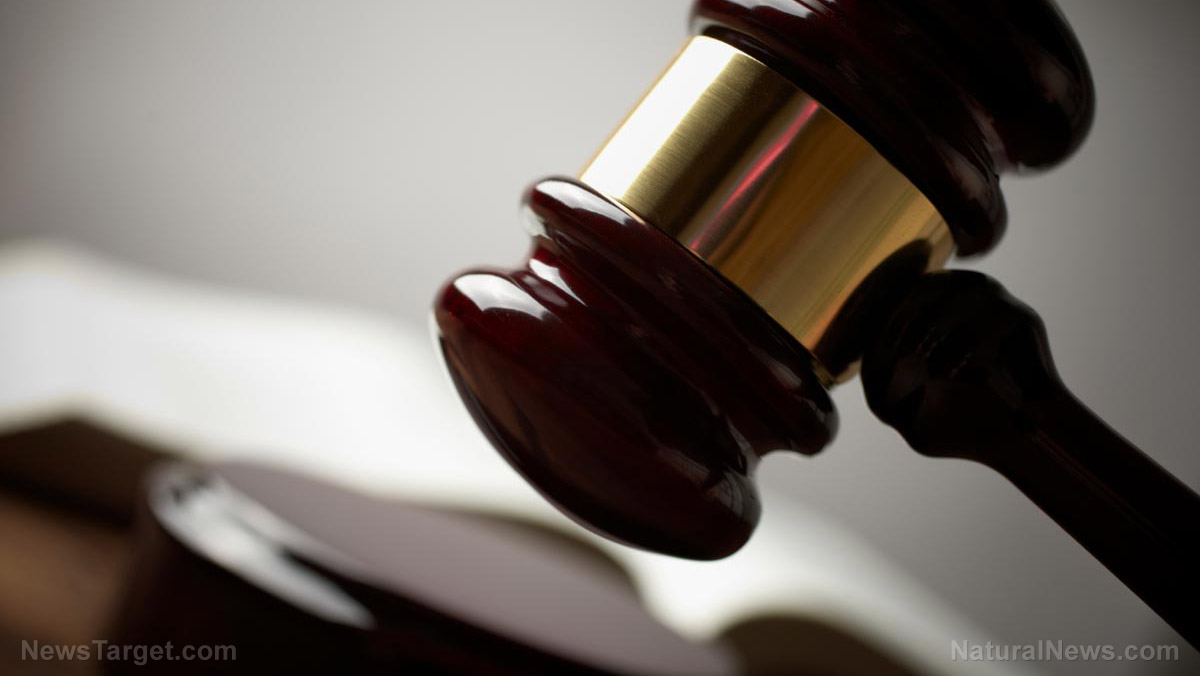Texas judge strikes down Biden’s student loan forgiveness plan
11/15/2022 / By Ramon Tomey

A federal judge struck down the student loan forgiveness plan put forward by President Joe Biden. Had the plan pushed through, hundreds of billions of dollars in student loans would be canceled – setting a disastrous precedent.
District Judge Mark Pittman, a magistrate for the U.S. Northern District of Texas, nixed the plan in his Nov. 10 ruling. Pittman, who was appointed by former President Donald Trump, ordered its reversal in a 26-page ruling. The federal judge ruled in favor of two borrowers represented by the Job Creators Network Foundation who challenged Biden’s plan in a lawsuit, ZeroHedge reported.
According to the Trump-appointed federal judge, the HEROES Act of 2001 did not authorize the Biden administration to implement its $400 billion student loan forgiveness program. Signed into law by former President George W. Bush, the law permitted loan assistance to members of the military.
“The program is thus an unconstitutional exercise of Congress’ legislative power and must be vacated,” Pittman stated.
According to figures published by the Congressional Budget Office in September, the plan would eliminate about $430 billion of the $1.6 trillion outstanding student debts. It added that 40 million people were able to benefit from this debt relief program, first announced in August.
Borrowers making below $125,000 annually, or below $250,000 annually for married couples, will have up to $10,000 of student debt wiped out under the plan. Those awarded with Pell Grants – typically given to those in greater need of financial aid – will have up to $20,000 of their student debt forgiven.
Appeals court deals another blow to student loan forgiveness plan
Days after Pittman ruled against the student loan forgiveness plan, the St. Louis-based U.S. Court of Appeals for the Eighth Circuit dealt another blow to it. (Related: Biden administration SUED over student debt forgiveness plan.)
On Nov. 14, the appellate court’s three-judge panel ruled to extend the preliminary injunction suspending the program while an appeal plays out. It initially put the plan on hold following challenges from six states – Iowa, Kansas, Arkansas, South Carolina, Nebraska and Missouri. The Nov. 14 ruling from the three judges, two Trump appointees and one appointed by the younger Bush, extended the program’s suspension until the issue is resolved in court.
The states’ argument centered around the financial harm the debt cancellation would cause the Missouri Higher Education Loan Authority, which the ruling considered. “This unanticipated financial downturn will prevent or delay Missouri from funding higher education at its public colleges and universities,” the three magistrates stated.
Nebraska Attorney General (AG) Doug Peterson said in a statement that the appellate court’s decision “recognizes that this attempt to forgive over $400 billion in student loans threatens serious harm to the economy that cannot be undone.” The Republican AG reiterated: “It is important to stop the Biden administration from such unlawful abuse of power.”
Meanwhile, the White House said it believes that the student loan forgiveness program has legal authority, adding that “it is necessary to help borrowers most in need as they recover from the pandemic.”
“The [Biden] administration will continue to fight these baseless lawsuits by Republican officials and special interests, and will never stop fighting to support working and middle-class Americans,” remarked White House Press Secretary Karine Jean-Pierre.
GovernmentDebt.news has more stories about Biden’s student loan forgiveness plan.
Watch Ophelie Jacobson, formerly of Campus Reform, explaining why canceling student loans can lead to a slippery slope.
This video is from the NewsClips channel on Brighteon.com.
More related stories:
Former Trump adviser: Student loan forgiveness plan likely to backfire on Dems.
Sources include:
Submit a correction >>
Tagged Under:
appeals court, Biden administration, Collapse, debt bomb, debt collapse, debt forgiveness, education, federal court, government debt, Joe Biden, loan forgiveness, national debt, Pell Grants, risk, student debt, student loan, White House
This article may contain statements that reflect the opinion of the author
RECENT NEWS & ARTICLES
COPYRIGHT © 2017 NATIONAL DEBT NEWS




















